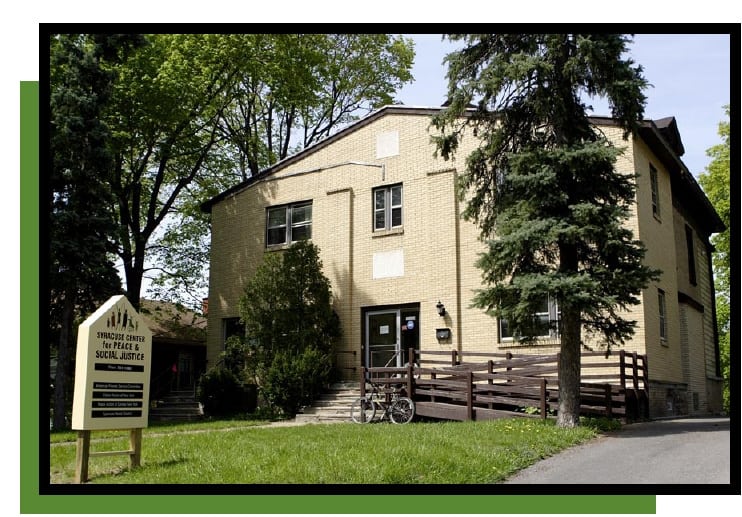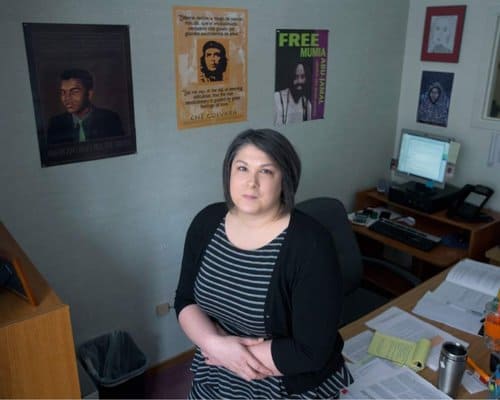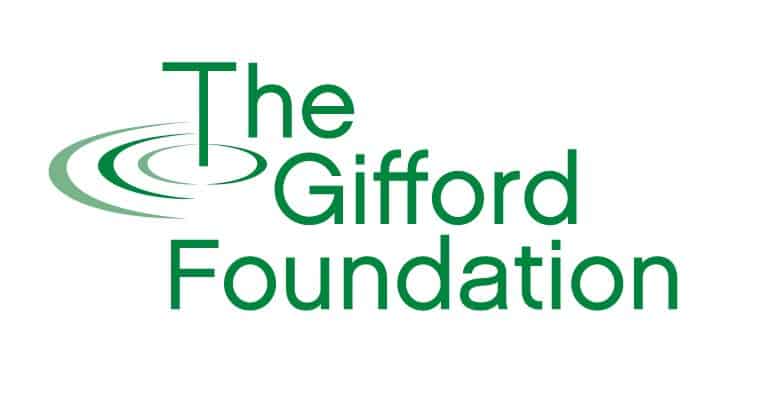The Center: Building Collaboration Among Syracuse Activists
The Syracuse Center for Peace and Social Justice has offered a supportive home for organizations with a shared vision for 13 years. Now they are using the Nonprofit Lifecycles framework to build their capacity and define clear goals for the future.
Published: August 18th, 2020
The Syracuse Center for Peace and Social Justice is an unusual type of nonprofit. Rather than lobbying for policy change or delivering services directly to the public, they focus on providing a home for other organizations in Syracuse. As the name suggests, The Center only offers space to groups whose mission is grounded in the promotion of peace and social justice. The idea is that by bringing together different groups that share a core vision and philosophy, they can encourage them share resources, collaborate on projects, and boost their impact.

Located at 2013 E. Genesee Street, The Center offers space to groups whose mission is grounded in the promotion of peace and social justice.
Located at 2013 E. Genesee Street, The Center was founded roughly 13 years ago after a successful capital contribution campaign generated enough funds for them to purchase the building. They are currently at full capacity with a total of eight organizations renting space at rates that are well below normal market value. Board President Caroline Sheffield explains that while affordability is one benefit that participating organizations enjoy, it is far from being the most important aspect to being a part of The Center. “Proximity is really important,” she says. “Coming into work and knowing that everybody in the building is there to bounce ideas off of you, to collaborate – that’s probably one of the biggest advantages.”
For Emily NaPier-Singletary, co-founder and co-executive director of the nonprofit Unchained, the shared identity of The Center’s residents was a major attraction. “It seemed like a great opportunity for us to collaborate and also for us to figure out the ways in which our work intersects with each other, in a way that you wouldn’t necessarily get in other places where it’s a wider variety of people.” She describes a recent example where her organization teamed up with the Workers Center of CNY to help prevent the deportation of a woman living in Syracuse. “We went and gathered people from the community to all be solidarity with her criminal court appearances and we were successful in stopping her deportation,” says NaPier-Singletary, “she’s still here in Syracuse.”
The struggle to gain funding can sometimes create friction and rivalry among nonprofits, but NaPier-Singletary says that this has not been the case among the organizations at The Center. “I think that all of us who have their offices there really do see each other – the individuals and organizations – as resources rather than a source of competition.”
Even with the pressures created by COVID, groups from within The Center are still active and collaborating. Sheffield says that at a recent forum with Mayor Ben Walsh to discuss police reform, representatives from three of The Center’s resident organizations spoke. “Right now with COVID, people aren’t passing each other in the hallways in the building, but the relationships that have built between people – there’s a lot of interconnectedness there.” The pandemic has presented new challenges for The Center, but they are finding ways to take advantage of the situation. Recently, an anonymous donor offered to pay for the installation of an elevator in the building. Sheffield says that having fewer people in the space has made construction less intrusive, and now there will be something new to look forward to when things start to open up.

Emily NaPier Singeltary is the co-founder and co-executive director of Unchained, a nonprofit whose headquarters is in The Center. She says that being a part of that community has encouraged cooperation and the sharing of resources among her and the other tenants.
Sheffield explains that one of the most common misconceptions about their work is that they are “just a landlord”. The Center maintains a close relationship with each tenant and offers assistance where possible. In one recent example, a group was having trouble achieving eligibility for a grant because they had not yet achieved nonprofit status. The Center was able to step in and serve as their fiscal sponsor, enabling them to move forward and receive the funds. They also offer community space where events, seminars, trainings, and other activities can be held.
Recently, The Center received a grant from the Gifford Foundation that would help pay for a consultant. They had been eager to raise their visibility within the City of Syracuse, improve the efficiency of their board, and generate a larger presence online. Sheffield says that The Center had been so caught up in their day-to-day activities that they struggled to find the capacity to achieve those goals. “It just felt like we were putting out fires,” she said.
One of the first things that their consultant did was guide them through a self-assessment process that was based in the Nonprofit Lifecycles framework. Lifecycles provides a lens to understand which developmental stage a nonprofit falls into, and from there help identify appropriate goals and next steps. “What she was able to help us identify was that even though our organization is 13-14 years in the making – instead of going from ‘startup’ to ‘maturity’ to ‘decline’, we went from ‘startup’ and then just kind of hopscotched over to ‘decline’ without ever really reaching maturity,” said Sheffield. By understanding that their developmental status is based not on how many years they have existed but on their actual capacity, The Center is better positioned to plan for the future and take feasible steps to fuel their growth.
One of the first areas of focus will be their board. Sheffield says: “We want to look at what our needs are, and look at our board of directors and say ‘okay, do we have the skills on the board to match those needs?’” Sheffield is confident that by reassessing The Center’s operations and structure they will be better positioned to build their capacity and extend their impact within the Syracuse nonprofit community.
Subscribe to the Gifford Newsletter
Start enjoying our free quarterly publication today.


